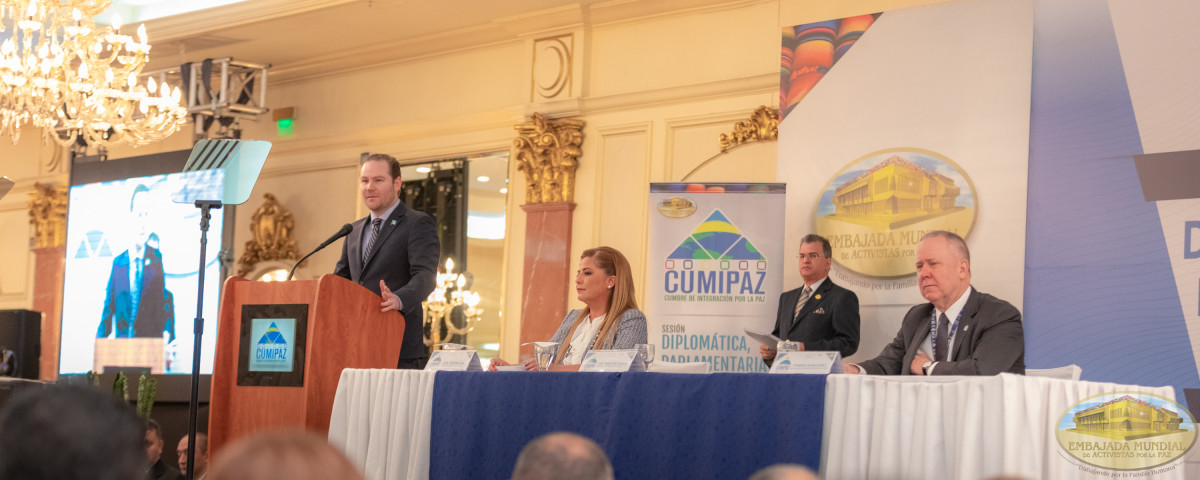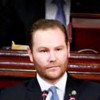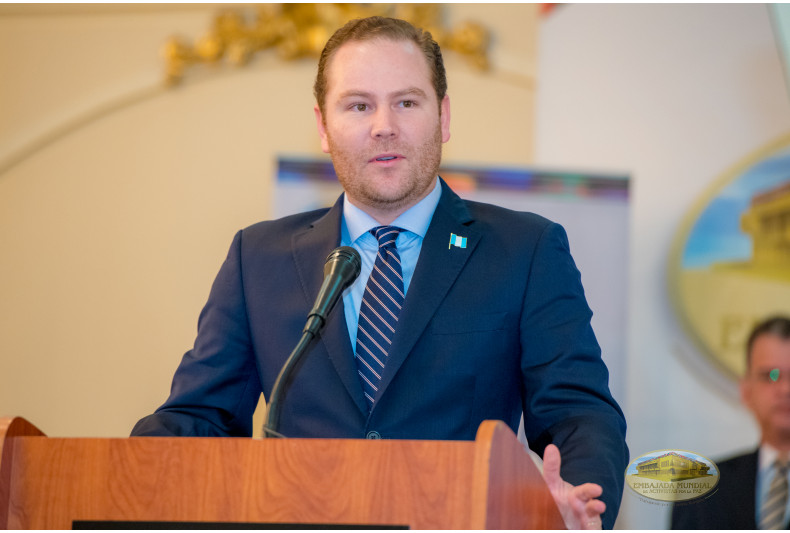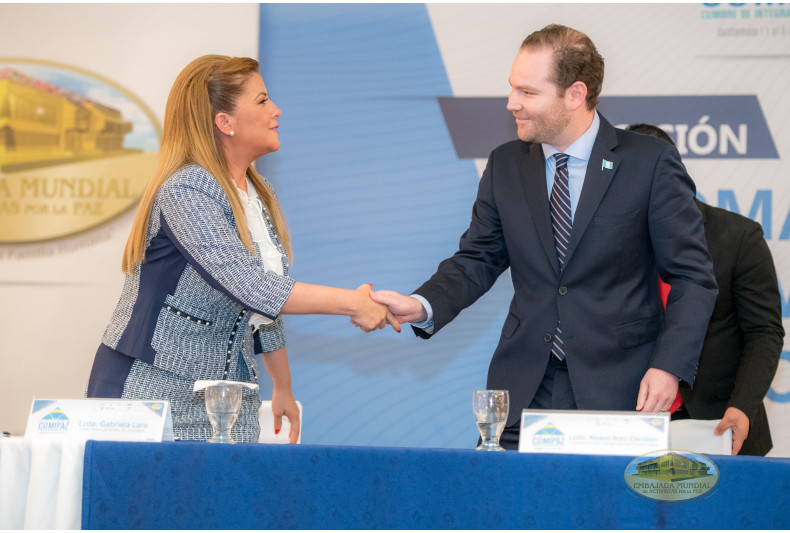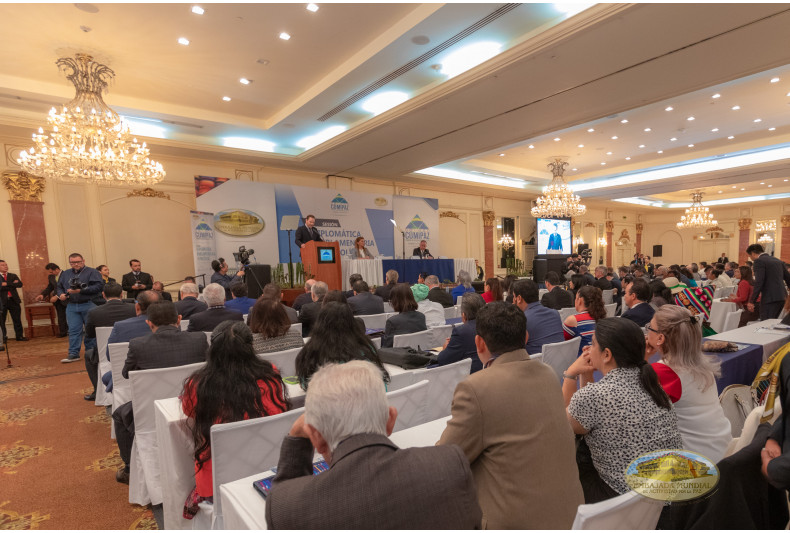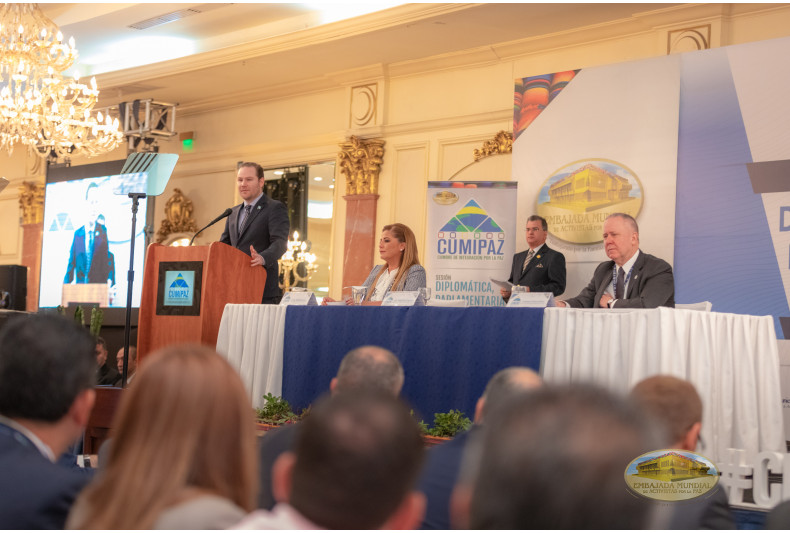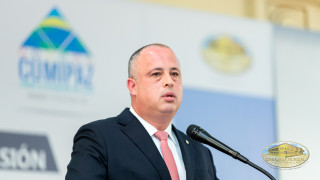President of the Congress Alvaro Arzú: Justice is unthinkable without peace
See GalleryThe president of the Guatemalan Congress, Alvaro Arzú Escobar, participated in the Diplomatic, Polictand Parliamentary Session of the Peace Integration Summit (CUMIPAZ 2018), where he presented the speech entitled "The True and False Peace".
The congressman contextualized his speech with a historical review and mentioned that the defeat of fascism and the disappearance of the Soviet bloc taught citizens that it is better to live in democracy and under free market laws, but in this 21st century the story and the old struggles continue.
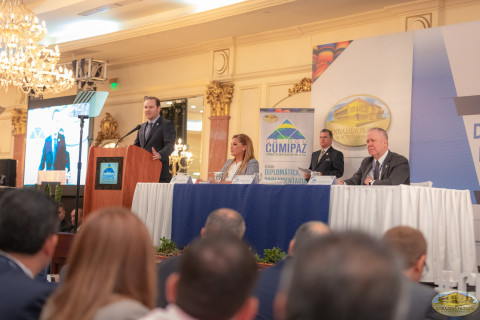
Arzú Escobar said that the power struggle has become a battle where the best strategy for managing resources of a country prevails; struggles that have destroyed morals and universal values.
In the case of Guatemala, according to Arzú, the false peace is paradoxical and ironic because the ideological clashes ended with the signing of the Peace Accords in December 1996. These agreements established, on the one hand, the fact of living in a globalized world, and on the other, the idea according to which the only legitimate way to seek power is the democratic way.
Arzúa emphasized:
"Twenty years after that historic signing of the Peace Accords, it is easy to perceive that there are sectors that seem to have forgotten that many of their current demands are embodied in that nation project."
The power struggle has divided Guatemalan society and this action is a pragmatic example of what Arzú calls false peace.
The president of the Congress, said that true peace is not free, it is achieved by fighting against forms of violence disguised as peace; It also has a form of struggle against the political use of human rights.
"We have the responsibility to rescue peace from the hands of those who understand politics as a strategy, as an instrument to reach sectarian interests to make war on its political enemies," he said.
Arzú expressed in his speech that the search for peace on the road to virtue is the only way to overcome the crisis of values, politics and institutions. "Justice is unthinkable without peace", he concluded.
